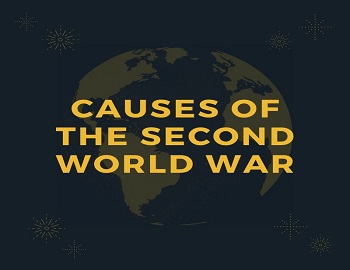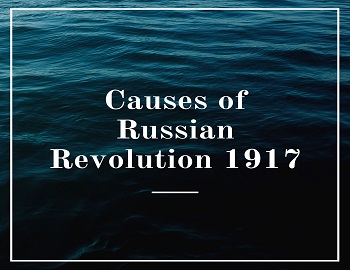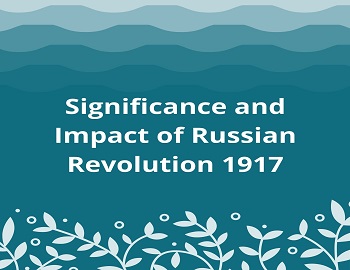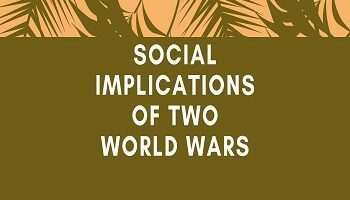Table of Contents
Causes of the Second World War:
The crisis caused by the German demand for Danzig and the Polish corridor was the immediate cause of the Second World War, but the ground for this war had been prepared since the end of the First World War. The fundamental causes of this great war were-
Humiliating Treaty of Versailles:
In the First World War, Germany was defeated and made to sign the humiliating treaty of Versailles (June 28, 1914). According to this treaty, a large amount was imposed upon her as the war reparation. It was beyond her capacity at that time. She was deprived of all her colonies. Her navy was completely disbanded. Her military power was reduced considerably. This treaty stripped her of all armaments and left her naked before her enemies. All this was done with Germany but she was not given a single opportunity to present her arguments. She was forced to sign the treaty. The Weimar Republic was not in a position to solve the post-war problems. The German people decided to take revenge for their humiliation. In fact, the Second World War was a war of retaliation. Therefore, the Treaty of Versailles had in itself the seeds of the Second World War.
Rise of Dictators:
The period of twenty years between the two World Wars is called the period of the dictators. The feeling of dictatorship arose rapidly in many countries of Europe, especially in Germany, Italy, Japan and Spain. The Weimar Republic which was established in Germany after First World War was accused of signing the Treaty of Versailles, so the Nazi Party rose. This Party wanted to annul the Treaty of Versailles and re-establish the prestige of Germany in the international field. The economic depression made a valuable contribution to the rise of Hitler. Hitler tried to convince the people of the world that he aimed at establishing peace but he could not conceal his real objective for long and soon he turned aggressive. In 1935, he flouted the military clauses in the Treaty of Versailles and declared re-armament. In 1938 he annexed Austria and dismembered Czechoslovakia. Now the clouds of war began to gather on all sides.
The rise of totalitarian Fascist regime under Mussolini in Italy also contributed to the Second World War. Mussolini glorified the war and loathed peace. According to him “Peace is absurd or rather a pause in war”. He wanted to revive the glory of Old Roman Empire and extend the influence of Italy through colonization.
The spirit of dictatorship arose in Spain and Japan also. In Spain, General Franco defeated the Republican Government and established his dictatorship. In this effort, he was assisted by the armies of Hitler and Mussolini. Japan became a partner of Hitler and Mussolini by signing the Rome- Berlin -Tokyo Axis. This Axis played an important role in disturbing the existing system of Europe and the Second World War started.
Conflict between Democracy and Autocracy:
The Second World War was, in fact, the struggle of two contradictory principles, i.e., democracy and autocracy. England, France and America were the supporters of the principles of democracy, while the principle of autocracy was fully supported by Germany, Italy and Japan. The war was inevitable between the supporters of these contradictory principles.
Failure of the League of Nations- End of the System of Collective Security:
The League of Nations was established in 1919 mainly to develop international cooperation and ensure peace and security but she failed to fulfil her objectives. The League got the first set back when the US refused to be its member. It’s paradoxical that League was the brainchild of US President Woodrow Wilson but later the United States herself refused to join the league. As a result, the league lost its inspirational fervour.
Impressed by the commendable work done by the League of Nations in certain fields between 1925 and 1929, fifty nations obtained its membership, but this was a temporary phase. As the League of Nations had no effective machinery to enforce its decisions, it, therefore, failed to maintain peace when quarrels involved big powers. The League could not take any effective step at the time of the Japan-Manchuria War, China-Japan War and Italy-Abyssinia War. It could not restrain Hitler also. These failures of the League proved its weakness and incompetence. In spite of the Locarno Pact and Kellogg-Briand Pact, mutual differences of the countries could not be ironed out. Thus, the failure of the League of Nations to control aggressive countries was a major cause of the Second World War.
Economic Depression of 1930s:
The most important economic cause of the Second World War was the Great Depression. The Depression intensified economic nationalism. Hit by the problems of unemployment and business stagnation, governments resorted to high tariffs to preserve the home market for consumption of their home products. This resulted in an expansionist policy leading to the conquest of neighbouring territories as a means of solving economic problems. Japan took the lead. In 1931 it reacted to the global economic crisis by seizing the Chinese northern region of Manchuria. In the face of the decline of Japanese exports of raw silk and cotton cloth, Japanese militarists came up with this idea so that Manchuria could be a market.
Spirit of Extreme Nationalism:
As in First World War, the spirit of extreme nationalism was one of the important causes of the conflict. Because of Industrial Revolution, the economic competition had been growing in the world. This economic nationalism was responsible for the War. The need for controlling this nationalism had been felt since First World War had come to an end. With this end in view, Wilson made the League of Nations an indivisible part of the Paris Peace Conference. But after the war, the spirit of internationalism failed to grow and various states continued to give top priority to their national self-interests. The influence of extreme nationalism was pre-eminent in Italy, Germany and Japan. Nationalism there aimed at making the nation strong and glorious and for this, the state considered it necessary to control all the economic resources and adopt aggressive policies. Hitler made the concept of ‘master race’ the basis of national greatness and kindled the desire to avenge the humiliation that the Treaty of Versailles had foisted on them. The economic depression played an important role in accentuating the spirit of nationalism. In reality, the economic depression extirpated the political and economic stability of the world forever.
Dissatisfaction of National Minorities:
The US President Wilson had advocated the concept of self-determination but his principle could not be implemented on various occasions. For instance, large German minorities were in company with non-Germans in Poland and Czechoslovakia. There were Russian minorities in Poland and Rumania. This gave rise to the feeling of insecurity among the minorities.
The Immediate Cause of War: German Attack on Poland:
Poland had been declared an independent kingdom according to the decision taken in the Paris Peace Conference. A Polish corridor was also created through Germany in order to join Poland with the sea coast. It ran up to the port of Danzig. This decision was also against the prestige of Germany. Hitler assured his countrymen to reestablish the lost glory of Germany. The establishment of Greater Germany was the fundamental aim of Hitler’s foreign policy. He considered his right over all those countries where German resided. For this purpose, he adopted aggressive policy and launched several attacks on different countries of Europe. He captured the provinces of Rhine, Austria and Czechoslovakia and established the Rome-Berlin-Tokyo Axis. Having taken Memel, Hitler made a plan for an assault upon Poland. He demanded that Danzig should be annexed to the German Empire immediately because the inhabitants of this territory were mostly Germans. He also demanded that the Polish corridor should be immediately ceded to Germany. Up to this time, England and France adopted the policy of appeasement towards Hitler and Mussolini. They made several efforts to appease the dictators instead of preventing their increasing power collectively. Poland clearly refused the demands of Hitler. As a matter of fact, Poland fully depended upon the military support of England and France. The British government gave up the policy of appeasement and announced that Great Britian would come to the rescue of the Polish government in the event of aggression on Poland. But Hitler did not care for the declaration of the British government and invaded Poland on September 1, 1939. As Great Britian was bound to help Poland, she declared war against Germany on September 3. Thus, the Second World War broke out in 1939.









Comments (No)